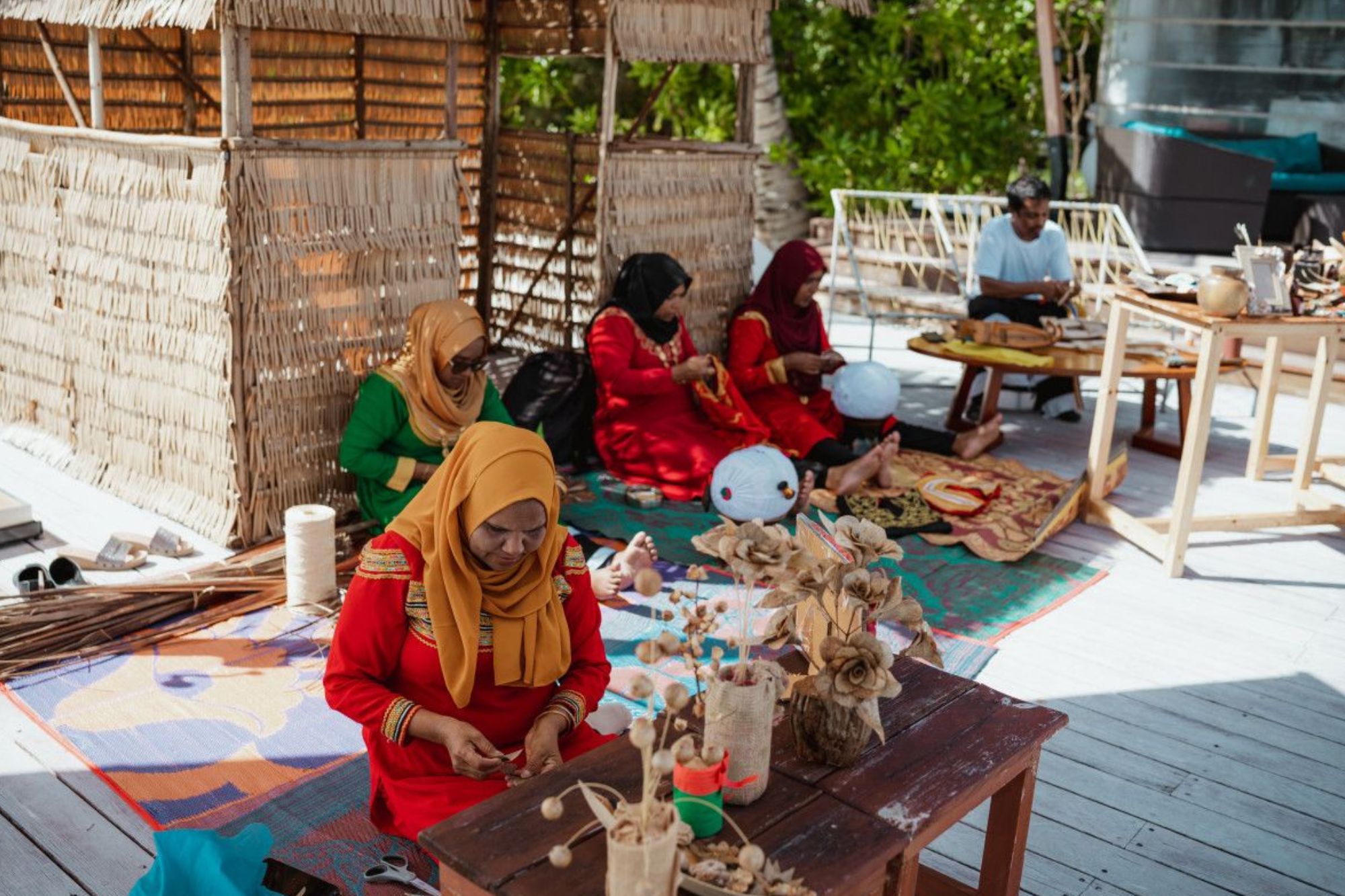



The Maldives is known worldwide for its turquoise lagoons and coral-ringed atolls, but the same fragility that makes these islands so alluring also demands care. Rising seas, coral bleaching, and the pressures of mass tourism have left their mark on this island nation. Travelling ethically here is less about restriction and more about respect — for the environment, for culture, and for the small communities who call these islands home. With thoughtful choices, visitors can help protect the Maldives while also enjoying a richer, more grounded travel experience.
In recent years, guesthouses on inhabited islands have created opportunities for travellers to engage more directly with Maldivian life. Staying in a family-run guesthouse supports local incomes and allows for authentic experiences — joining fishing trips, eating home-cooked meals, or learning about island traditions. Unlike many resort islands, where most revenue leaves the country, community stays keep earnings within local hands and strengthen the fabric of small island economies.
From small cafés in Malé to handicraft workshops on island communities, local businesses thrive when travellers step outside resort boundaries. Shopping for lacquerware in Thulhaadhoo or woven mats in Fioari sustains artisanal traditions, while meals at neighbourhood restaurants keep dining culture alive. Even simple gestures, like hiring local guides for snorkelling trips, can make a tangible difference in ensuring tourism benefits communities rather than bypassing them.
The Maldives’ reefs are both a magnet for travellers and a frontline in the fight against climate change. Ethical snorkelling and diving means choosing operators who avoid anchoring on reefs, prohibit fish feeding, and educate guests on marine life. Using reef-safe sunscreen is another simple but vital step, as chemical sunscreens have been shown to damage corals. Respecting the ocean ensures that the Maldives’ extraordinary underwater ecosystems can thrive for future generations.
On local islands, Maldivian culture is conservative, and respecting it is part of travelling responsibly. Swimwear is fine on designated bikini beaches, but modest dress is expected in villages and public areas. Removing shoes before entering a mosque or home is customary, while Ramadan calls for extra awareness around eating and drinking in public. By observing local etiquette, visitors demonstrate appreciation rather than intrusion.
Freshwater is scarce on many islands, and waste disposal is a pressing challenge. Simple actions make a difference: carrying a reusable water bottle, refusing single-use plastics, and being mindful of long showers all lighten the load on fragile infrastructure. Some guesthouses and resorts now filter their own water or operate waste management schemes — seeking out these initiatives helps encourage wider adoption of sustainable practices.
From coral nurseries to turtle rehabilitation centres, conservation projects across the Maldives welcome travellers as supporters and participants. On some islands, visitors can help plant corals, monitor reef health, or learn about efforts to restore mangroves. These experiences offer more than a glimpse behind the scenes — they also allow travellers to contribute directly to safeguarding the very ecosystems that drew them here in the first place.
Ethical travel in the Maldives does not require sacrificing comfort or experience. It asks only for awareness and willingness to engage more deeply. Whether it’s choosing to stay in a guesthouse, supporting a local artist, or being attentive to the reefs, every decision shapes the future of these islands. For those who travel mindfully, the Maldives becomes more than a dream escape — it becomes a place where culture and nature can be both appreciated and preserved.
Image: visitmaldives.com